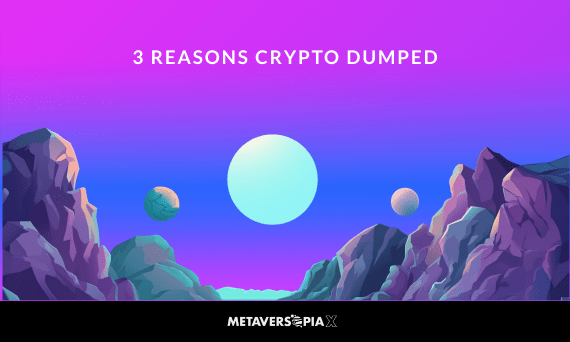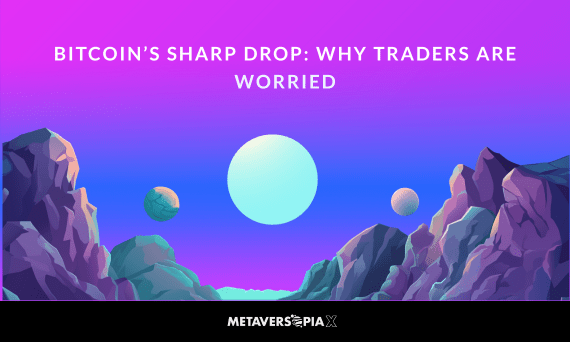
Crypto Community Clashes with JPMorgan
Tensions between traditional finance and the cryptocurrency world have reached a new peak. The latest controversy — where the crypto community clashes with JPMorgan — has sparked widespread outrage after fresh allegations of Bitcoin debanking emerged. These claims have fuelled a surge of boycott calls, amplified by influential voices across the digital-asset space. Although friction between banks and crypto firms is not new, this moment feels different, signalling a deeper divide with far-reaching implications for the future of crypto-banking relationships.
Although conflict between banks and digital assets is not new, the scale of the reaction in this case has surprised many. It also raises important questions about banking fairness, market influence, and the future of Bitcoin-linked companies in mainstream financial systems.
Below, we break down what happened, why the community is furious, and what this controversy could mean for crypto’s relationship with major banks going forward.
Understanding the Debanking Claims
The uproar began when prominent members of the crypto community accused JPMorgan of unfairly severing ties with Bitcoin-focused individuals and businesses. The most notable claim came from Jack Mallers, CEO of Strike, who stated that his personal JPMorgan Chase account was abruptly closed without a clear reason.
According to Mallers, the bank told him they “could not disclose” why his long-standing account was terminated. This statement alone fuelled suspicions that the closure was linked to his involvement in Bitcoin payments and digital-asset infrastructure.
Consequently, the term “debanking” resurfaced. It describes occasions where banks shut accounts or refuse services, often without giving sufficient justification. The crypto industry considers this both discriminatory and harmful, especially at a time when digital assets are gaining global acceptance.
As the news spread, more crypto advocates began sharing their own examples of sudden account closures or unexplained restrictions. Although such stories are not new, this particular incident appears to have united the community with renewed determination.
Index Concerns Add Fuel to the Fire
While the Mallers incident triggered the initial reaction, JPMorgan’s research note on MicroStrategy — one of the world’s largest corporate holders of Bitcoin — added even more tension.
The bank suggested that companies with significant crypto holdings may be removed from major MSCI indexes under new classification criteria expected in 2026. MicroStrategy sits at the centre of that discussion. The company has become synonymous with large-scale Bitcoin accumulation, holding more than 200,000 BTC as part of its treasury strategy.
JPMorgan warned that if index providers reclassify “crypto-exposed” firms, MicroStrategy could face major outflows from index-tracking funds. Some estimates indicate potential forced selling worth several billion dollars.
Although the bank framed its analysis as a market observation rather than a recommendation, many in the crypto community interpreted it as another example of legacy institutions undermining Bitcoin-aligned companies.
Why the Crypto Community is Outraged
The backlash against JPMorgan is not based on one single event. Instead, it reflects deeper frustrations that have been building for years. Several concerns are driving the outrage:
1. Perceived discrimination against Bitcoin businesses
Crypto advocates argue that large banks treat digital-asset companies unfairly. Sudden account closures and intense compliance scrutiny create operational difficulties for these firms. Many see this as an attempt to limit the growth of decentralised finance.
2. Lack of transparency
Debanking usually occurs with vague explanations or none at all. This lack of clarity fuels distrust and makes it difficult for businesses to plan responsibly.
3. Potential suppression of Bitcoin-centric firms
JPMorgan’s warning about index exclusion for companies like MicroStrategy appears, to some, as a strategic attempt to influence market perception. Investors fear such commentary could deter institutional participation.
4. A long-standing cultural divide
Traditional banks operate within tightly regulated frameworks. Meanwhile, the crypto ecosystem values openness, innovation and autonomy. These philosophical differences frequently lead to conflict.
Because of these factors, the community sees the latest events not as isolated incidents, but as part of a pattern.
Boycott Momentum Builds
Calls for a boycott have accelerated rapidly, especially as the crypto community clashes with JPMorgan over alleged debanking practices. Influential voices across the digital-asset space are urging users to close their accounts, withdraw funds and shift to platforms that treat crypto clients more fairly. Some high-profile figures claim to have already moved significant sums in protest, using their platforms to encourage others to follow suit.
This movement is gaining symbolic strength, even if the financial impact on JPMorgan remains uncertain. It reflects a growing unwillingness among crypto users to remain loyal to banks perceived as hostile to the industry. As frustration builds, many are turning towards crypto-friendly banks and decentralised finance alternatives, signalling a potential shift in customer loyalty and long-term banking habits.
What This Means for Bitcoin Holders and Blockchain Businesses
The tension between JPMorgan and the crypto world has broader implications that extend beyond one bank or one company. Several key issues now sit in the spotlight:
Access to banking remains crucial
Despite decentralisation, businesses still rely on banks for payroll, payments and fiat-on-ramps. Losing access without warning can severely impact daily operations.
Institutional acceptance remains uneven
Some banks have embraced digital assets, offering custody services and blockchain-based payment tools. Others remain hesitant. These inconsistencies create uncertainty for startups and investors.
Regulatory clarity is increasingly important
Banks often cite compliance risk as a reason for terminating accounts. Clearer regulations would help reduce ambiguity and ensure fairer treatment for crypto-native firms.
Market perception matters
When influential banks release research that casts doubt on Bitcoin-exposed companies, it shapes investor behaviour. This can either slow adoption or push firms towards decentralised alternatives.
Could This Shift the Banking Landscape?
The unfolding situation has raised serious questions about how major banks will handle crypto clients in the years ahead. As the crypto community clashes with JPMorgan, smaller institutions that openly support digital-asset businesses may gain a competitive edge. Although JPMorgan is unlikely to feel immediate financial pressure, reputational shifts can influence long-term strategy.
Furthermore, this moment could accelerate interest in decentralised finance. When users feel unwelcome or restricted by traditional banks, they naturally begin exploring non-custodial alternatives. This friction may ultimately reshape how everyday customers and crypto-native firms interact with financial services, potentially pushing more people towards blockchain-based solutions.
What Happens Next?
Several developments should be monitored closely:
-
Whether JPMorgan publicly addresses the backlash
-
Any updates on MSCI index reclassification plans
-
MicroStrategy’s response to the research commentary
-
Whether other banks tighten or relax their crypto onboarding rules
-
How investors react if more debanking claims surface
The situation remains fluid. However, one thing is clear: the relationship between traditional finance and the crypto sector is evolving quickly, and tensions like this accelerate the pace of change.
Final Thoughts
The ongoing dispute highlights how fragile the relationship between traditional finance and the digital-asset sector still is. As the crypto community clashes with JPMorgan, the conversation around fair treatment, transparency and equal banking access becomes even more urgent. Although it’s unclear whether the boycott will lead to lasting change, the situation marks a pivotal moment in the push for clearer regulation, improved cooperation and a more open financial landscape for Bitcoin-focused businesses.
This clash demonstrates that misunderstandings, regulatory uncertainty and cultural differences continue to drive friction. Yet it also shows the strength of the crypto community’s voice. When users stand together, even the world’s biggest banks are forced to acknowledge them.
Whether the boycott creates lasting change remains to be seen. Nevertheless, it marks an important moment in the ongoing struggle for fair treatment, transparency and equal access for Bitcoin-linked businesses.















